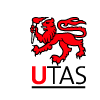Ethical Principles of Student Assessment
1. Validity
Assessments can be deemed valid when ‘they assess what they claim to assess’. This means that assessments are validly achieved when:
- assessors are fully aware of what is to be assessed;
- evidence, that clearly relates to what had to be assessed, is provided;
- the collected evidence clearly demonstrates the criteria have been met, and
- there is sufficient evidence.
2. Reliability
 Assessment that is reliable incorporates procedures that guarantee all students would be assessed in a manner that would be consistent to all students and contexts. To maximise the reliability of assessments, it is important that:
Assessment that is reliable incorporates procedures that guarantee all students would be assessed in a manner that would be consistent to all students and contexts. To maximise the reliability of assessments, it is important that:
- the assessment procedures are clear and well documented;
- the assessment criteria is clear and unambiguous;
- there is more than one person responsible for the assessment, and
- evidence is gathered from a variety of sources to measure the same performance.
3. Fairness
Assessment practices must be equitable for all students and be seen as fair so that it does not disadvantage any person. At the commencement of the practice rotation the student should clearly understand what is expected of them and the approaches that will be used for judging performance. To ensure that students are not disadvantaged during the course of assessment, it is important that:
- the process and criteria for assessment are clear to the student;
- the potential disadvantages of the assessment process are identified;
- strategies are implemented to counter any possible assessment disadvantages;
- the process of assessment should acknowledge any problems that students may have experienced that may indicate unfairness, and
- they acknowledge and develop ways of overcoming them.
4. Flexibility
Accommodating the degree of knowledge and skills in relation to the learner’s specific needs and the context in which the assessment will take place ensures flexibility.
|




